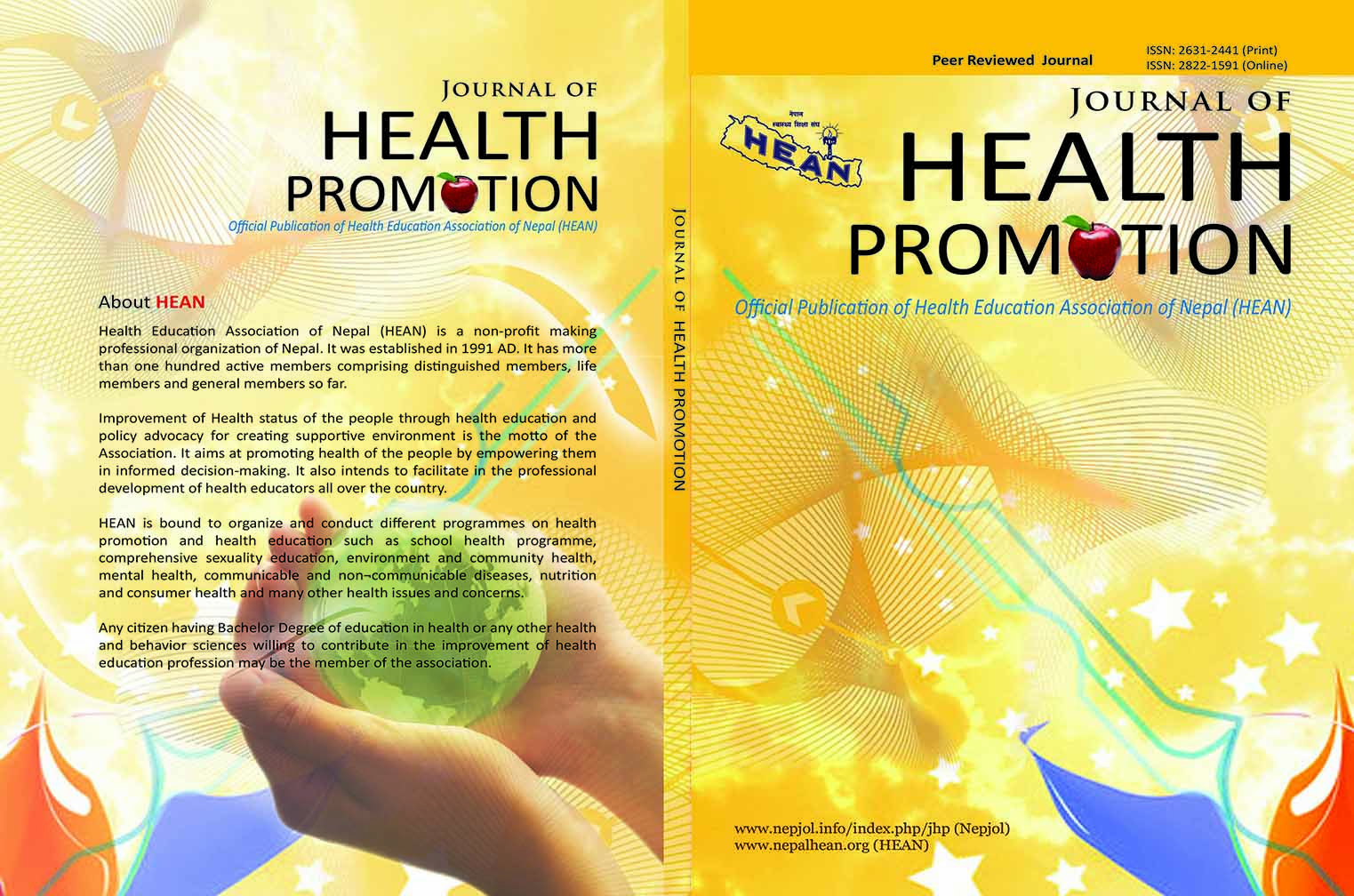Surviving Research between Two Guns: Lessons Learnt from Nepal
DOI:
https://doi.org/10.3126/jhp.v7i0.25517Keywords:
Conflict, health, Maoist, NepalAbstract
Nepal’s decade long violent conflict (1996-2005) between the Nepal Communist Party (Maoist) and the Government of Nepal resulted to over 14000 deaths and thousands others became disabled and lost their properties. During this violent war, the Maoists developed their own health cadres mainly to treat the combatants and the community people under their control areas to some extent. This paper is based on author’s personal account of field experiences while conducting PhD research using mixed methods study comprising in-depth interviews and self-administrated questionnaire on the former Maoist health workers in Nepal. This study suggests a few dilemmas the first author confronted with while under taking this research. First and foremost is the risk involved to both the researcher and the participants in the absence of trust and security on both sides of the conflict. Secondly, the sources of information could easily be biased either deliberately (as propaganda) or more subtly based on respondents’ perspectives. The issues of accessing the research participants, relationships, complicity, representation and being rejected by a contact are pertinent issues when carrying out independent research. Thirdly, maintaining ethics and keeping a right balance between research, humanity and sense of justice is also the dilemma that might have affected the research findings derived from dangerous environments. Fourthly, lack of precise methods that are valid and reliable to investigate certain dynamics of conflict in the politically violent and crisis environment could be equally contested. Fifthly, undertaking cross disciplinary research on a conflict-related topic during wartime by a researcher with background in allied field is even more challenging. The researcher need to have both an in depth knowledge of conflict theories as well as being able to apply these to another discipline which can be cumbersome. This article presents a personal account of a Rotary fellow who conducted his public health research among the Maoists combatant health workers of Nepal. It presents his lived experiences that could be important in carrying out appropriate and credible research during violent conflict elsewhere in future.
Downloads
Downloads
Published
How to Cite
Issue
Section
License
© Health Education Network (HEAN)
Authors are required to transfer their copyright to the Health Education Association of Nepal (HEAN).
The materials of this publication may be reproduced, reviewed and translated, acknowledging the source "Journal of Health Promotion".




